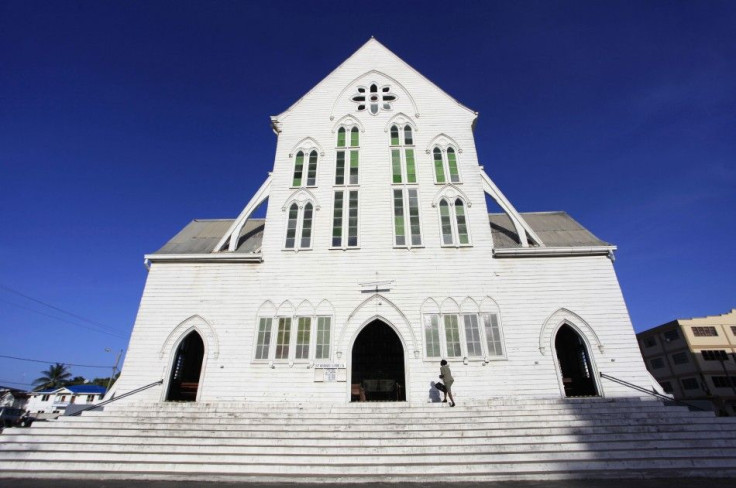Politically Charged Churches: Turning Off America’s Youth?

Shawn Carter felt an overriding sense of freedom - freedom of religion, freedom of thought, and the freedom to express both - when his parents, both founding members of a Baptist church, kicked him out of their home after he stopped attending. It became one of the defining moments of his life, he said.
[The church] had moved from a spiritual, God-led path to center as a political powerhouse, Carter, 25, an executive assistant in Colorado. It is detrimental to the church to have politics invested in it because you are [taking] a body of government with its laws and structures and rules and placing it over something that is so incredibly personal, spiritually.
Carter's experience is not unique. According to an October poll from the Pew Forum on Religion and Public Life, 15 percent of voters who attend religious services at least once or twice a month have reported receiving political information from the pulpit. But when religious and political ideals are presented as a unit, people often forfeit both - or, at very least, one.
Though this rejection happens most often during early adulthood, it is not a simple act of childhood rebellion; rather, it is a mature attempt to answer a metaphysical question. Religion and politics both concern the government of the soul, the most fundamental act of self-government. If political-religious ideas are conveyed too abrasively, it's easy to see why some who object to the method or means of communication reject the message, too.
This rejection affects not only individual souls but also broader politics. It's no secret that religious affiliations are linked to voting predilections; another Pew poll reported 69 percent of white Protestants voted Republican in the 2010 elections, a 6-point increase from the 2008 elections.
Religion has always been drawn to politics, said Monika McDermott, a Fordham University professor who studies American political behavior. It has always been the case, but with the strength of the evangelical movement, and its keen interest in politics and policy, it has made this link very prominent.
Those who don't toe the church's political line can sometimes struggle to fit in. Janna Luttrell, a 30-year-old Brooklyn-based artist, grew up in a strict Episcopalian church. She abandoned the conservative politics, but not the religion, of her parents and grandparents.
The issue of health care, which she views as a universal human right, prompted her leftward migration, eventually leading her to the Christian left -- or, as she calls it, the Hipster Christians. Consequently, Luttrell said she often finds herself more at odds with family and fellow Christians than she does even with those of other religions and political backgrounds.
People create moral issues out of everything, even out of economical issues, Luttrell said. It's like things are over-spiritualized... You see the right-wing being a certain way, and you don't want to be associated with that. It's hard to be Christian and Republican and socially liberal on some issues.
Pew reported that black Protestant churches are the most political of the denominations, with 36 percent of attendees receiving church-distributed political information. Fredrick Harris, a Columbia University professor who researches religion and black politics, said because of their community focus, many black churches aligned themselves with political parties, and they would exchange favors.
Charles Williams, 24, is the son of an East St. Louis, Ill., pastor. Although his family wasn't particularly political, he said politicians often visited his church, hoping to secure the black vote, especially around election time.
Certain politicians were not allowed to come to the church, though, Williams said, And I don't like hearing one side of the story, so I never really tried when it comes to politics. ... Religion is what we practice, and it is supposed to be guided by God. Politics is decided by the people and so, if that is our focus, we are worshipping people. Our focus in church would then be wrong.
Still, some argue that religion and politics can't - and shouldn't - be divorced.
The reason why people talk about religion and politics almost in the same breath is because they are inseparable, said Nathan Winters, an associate pastor at First Baptist Church in Thermopolis, Wyo., and chair of the Hot Springs County Republican Party. You are dealing with one's moral values. Religion helps you determine those moral values and politics are a reflection of those values.
Winters said young people reject their political or religious upbringing because no one in church has articulated the reasons behind political beliefs; the youth are simply asked to accept a political affiliation as part of a broader belief scheme.
In America, the separation of church and state is cherished as a moderating political principle, but the intermingling of religion and politics also carries serious implications for the church. In Democracy in America, Tocqueville wrote: Religions ought, more cautiously than any other, to confine themselves within their own precincts; for in seeking to extend their power beyond religious matters, they incur a risk of not being believed at all.
As young people become more political - see, for instance, the larger-than-usual youth vote in the last presidential election - it becomes more spiritually polarizing for churches to convey political messages.
© Copyright IBTimes 2024. All rights reserved.











